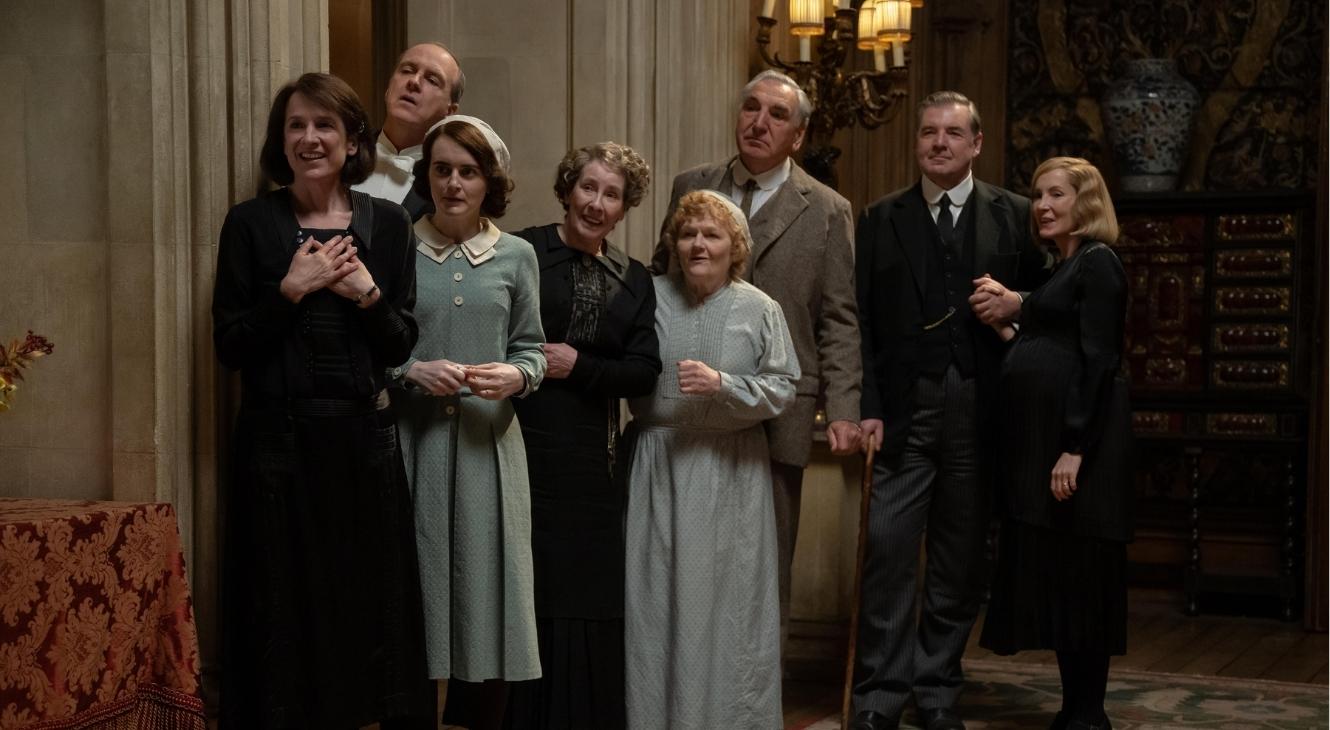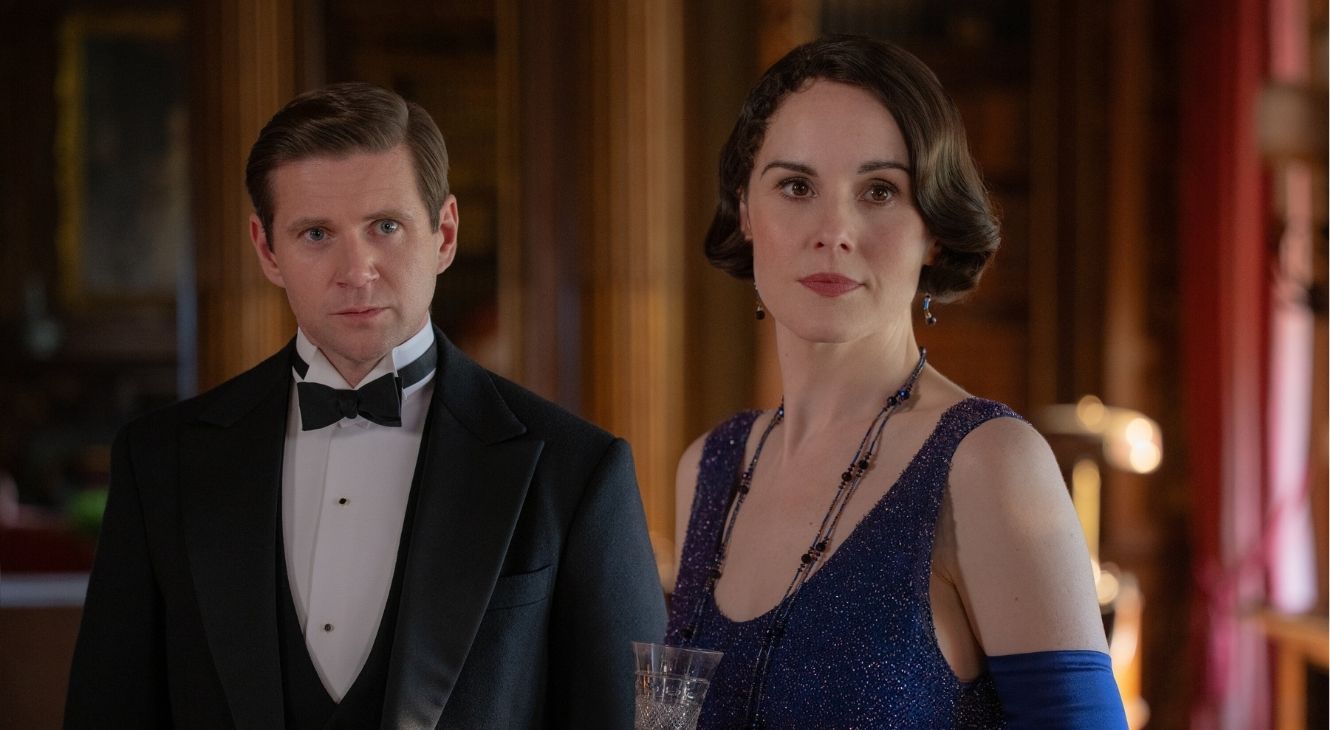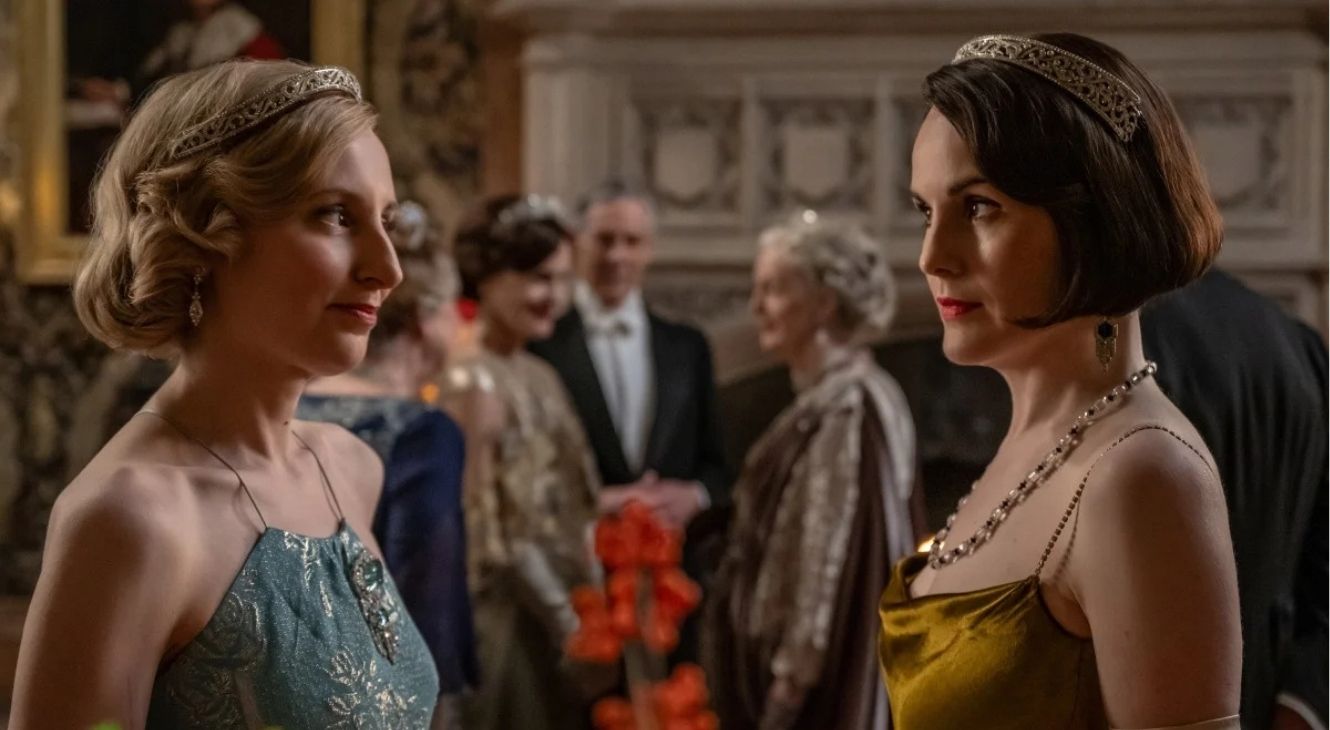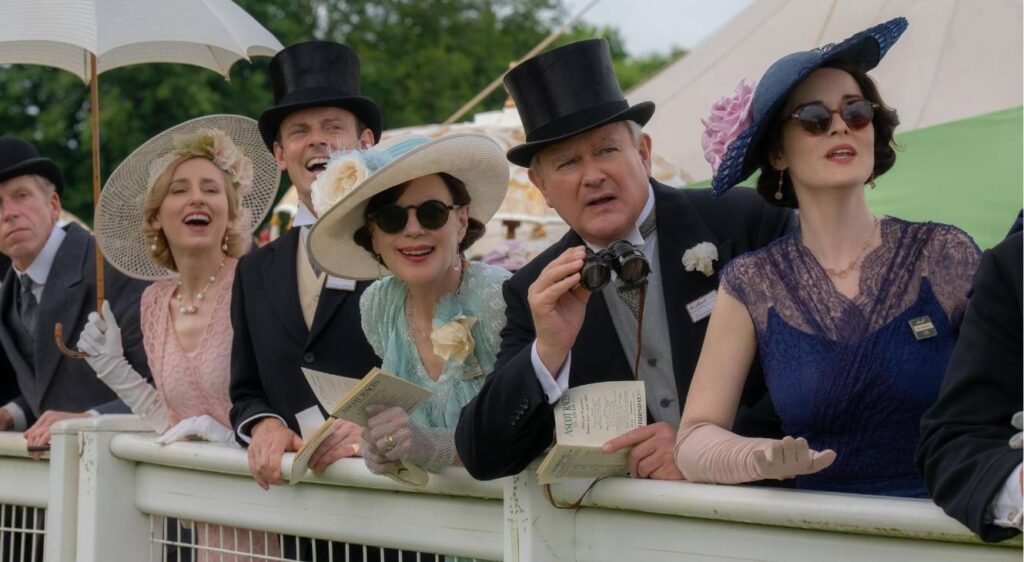It’s 1930 in Downton Abbey The Grand Finale, and the Crawley family lives as splendidly as ever among the British aristocracy. But as Mary (Michelle Dockery) faces divorce and subsequent societal isolation, and the reverberations of the 1929 Wall Street crash reach Downton Abbey, the family finds themselves in a predicament that threatens to upend their wealthy lives.
Lovingly written by series scribe Julian Fellowes and expertly directed by Simon Curtis, Downton Abbey The Grand Finale brings the beloved series to a close with a keen understanding of why it captivated audiences everywhere, while giving almost every character and story arc a fitting conclusion.
It’s quite funny being a Downton Abbey fan, understanding that we should abhor the aristocratic and imperialist systems of the British Empire while remaining captivated by these particular aristocrats. Perhaps it’s the balancing act of Fellowes with always showcasing the working class, including in Downton Abbey The Grand Finale, as they start to make their next moves.
We see now head chef Daisy (Sophie McShera), butler Andy (Michael Fox), Mrs. Patmore (Lesley Nicol), Miss Baxter (Baxter), Mrs. Carson née Hughes (Phyllis Logan), her husband Mr. Carson (Jim Carter), Anna Bates (Joanne Froggatt), and her husband John Bates (Brendan Coyle) make their own life changes in tandem with the Crawleys, including a hint of breakdown of their rigid class structures.
Downton Abbey The Grand Finale lets us say goodbye to the Crawleys and their staff.

While Downton Abbey The Grand Finale certainly doesn’t go the full mile of dismantling the class structures, it’s through our stalwart progressive Isobel Merton (Penelope Wilton) that we finally begin to see them break down as she facilitates Daisy and Mr. Carson into the running of the county fair.
It might seem small, but in the context of just how rigid the classism of Britain has historically been, it’s a refreshing subplot that Fellowes has included in his final Downton work. While nostalgia for the Edwardian period persists (for better and worse), Fellowes makes it clear that the need to embrace change is paramount for his characters.
And none seems to take this change harder than the Earl of Grantham himself, Robert Crawley (Hugh Bonneville). While Robert has certainly had his fair share of annoying moments as the stubborn patriarch, Fellowes gives him a far more poignant introspection into his struggles to let go of the past. Bonneville, always great in the role, delivers one of his best performances in his final outing, allowing Robert to exhibit grace and dignity, balanced with his other, more frustrating qualities.
Elizabeth McGovern, playing his wife Cora, also has one of her best performances in Downton Abbey The Grand Finale. Ever the balancing force in her complicated family, she too goes through the ringer as she receives her feckless brother Harold (Paul Giamatti), who has effectively gambled away much of their family fortune.
McGovern is a delight as she trades barbs with Giamatti and handles her troubled husband and daughters. Since Violet’s (Maggie Smith) passing in the previous film, she rises splendidly as the next grand matriarch of the Crawley family.
Michelle Dockery’s Mary shines in Downton Abbey The Grand Finale.

Due to both the story and her real-life passing, Smith’s absence is sorely felt, but the cast more than suffices in honoring the legacy she brought to Downton. There are too many zingers to count, especially from Dockery as Mary.
Growing increasingly into her role as lady of the house, it’s abundantly clear just how much Mary has grown into a kinder, wiser, and overall more amicable character. Dockery, per usual, plays Mary with grace, wit, fortitude, and warmth that she’s never had before, while still retaining her razor’s edge. In the midst of a scandal due to societal sexism, Mary remains as high as ever above it.
It is especially gratifying to see how close Mary now is with her sister Edith (Laura Carmichael), who has grown remarkably in her role as Marchioness of Hexham. Far from the days of her insecurity and jealousy, Carmichael now plays Edith with confidence, courage, and unconditional compassion for her entire family, especially Mary.
Channeling her grandmother, Violet, there are superb scenes in this film where we see Edith reprimand various characters with sharp wit and grace. The younger Crawley sister has grown considerably, and Downton Abbey The Grand Finale makes sure to highlight it.
Seeing how characters have fully come into their own makes this a fitting end for our faves.

If there’s one character who gets short shrift, it’s unfortunately Allen Leech‘s Tom Branson. While the film has many characters to juggle, it’s still disappointing to see Tom arrive so late to the scene, only to help the family out, and not have a more complete conclusion than his character warrants. Yes, he is happy with his wife Lucy (who is unfortunately absent from the film) and his children, including Sybbie (Fifi Hart), named after her dear departed mother Sybil Crawley, but we don’t get a satisfying introspection into his revolutionary zeal.
Of course, it had taken a backseat through the show and films, but Tom’s love for Ireland and his people was always apparent. In this concluding chapter, it is unfortunately less so, and Fellowes deigned not to have him renew any of his activism. Of course, there’s much to handle in the film, so perhaps he couldn’t find a conceivable way to fit it in. But given the importance of Tom to expanding the narrow worldview of the Crawley family, it remains a disappointment.
Thankfully, the comic relief of Kevin Doyle as Mr. Molesley (also Miss Baxter’s husband) doesn’t let up as he attempts to grab the attention of famous playwright Noel Coward (Kevin Doyle), visiting Downton with former butler Thomas Barrow (Robert James-Collier) and Barrow’s secret partner, actor Guy Dexter (Dominic West). The trio of visitors provide their own great addition of witty comic relief, especially Doyle as the Coward, relishing in the absurdities of the upper class. In that sense, they act as a great audience surrogate.
Overall, Downton Abbey The Grand Finale is a fitting end to the decades-long Crawley saga. Having gone through various ups and downs with this family and their servants, it’s bittersweet to say goodbye, but satisfying to put this story to a close. With confidence that Fellowes has done justice to at least most of his characters, and incisive societal commentary as he is wont to do, he can put his most famous work to rest with satisfaction.
Downton Abbey: The Grand Finale is in theaters now.
Downton Abbey The Grand Finale
-
Rating - 8.5/108.5/10
TL;DR
Downton Abbey The Grand Finale is a fitting end to the decades-long Crawley saga. With confidence that Fellowes has done justice to at least most of his characters, and incisive societal commentary as he is wont to do, he can put his most famous work to rest with satisfaction.







